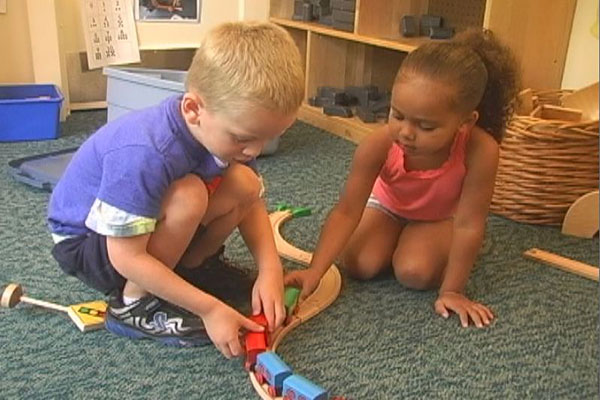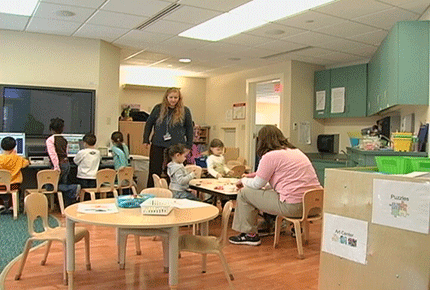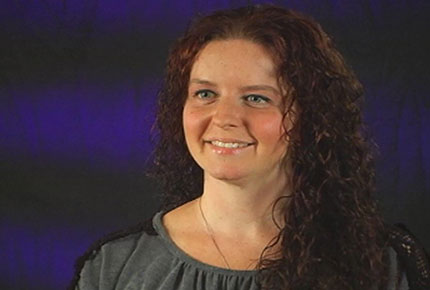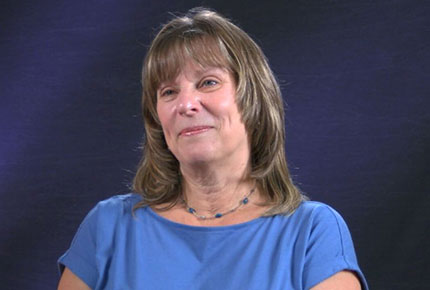- Apply
- Visit
- Request Info
- Give
Scroll

When adults make decisions based on what known about child development in general, along with the particular needs of the children in their care, they are able to plan with intention. They learn about children through observation and authentic assessment, then use that data in order to select effective teaching behaviors that are well-matched to the children in their care.
The videos and resources below provide ideas and guidance on practicing intentionality in the early childhood classroom through observation, documentation, activities, and learning opportunities.
 Documenting Children's Learning (10:42)Documenting how children are learning is an important activity for early childhood professionals to engage in on a regular basis. In this e-clip, Judy Harris Helm discusses why documentation is so critical and identifies some of the different purposes of documentation. Two preschool teachers and one toddler teacher describe the various ways they document and well as how they use documentation to help achieve different goals.
Documenting Children's Learning (10:42)Documenting how children are learning is an important activity for early childhood professionals to engage in on a regular basis. In this e-clip, Judy Harris Helm discusses why documentation is so critical and identifies some of the different purposes of documentation. Two preschool teachers and one toddler teacher describe the various ways they document and well as how they use documentation to help achieve different goals.
 Fostering Essential Dispositions (11:12)From an early age, learning is influenced by one’s dispositions, or tendencies to think or act in particular ways. This video emphasizes six essential dispositions of competent learners. Caregivers are encouraged to support children to be: creative, inquisitive, flexible, critical thinkers, purposeful & reflective, and social learners. Toddler and preschool teachers describe why and how they promote these dispositions within their program.
Fostering Essential Dispositions (11:12)From an early age, learning is influenced by one’s dispositions, or tendencies to think or act in particular ways. This video emphasizes six essential dispositions of competent learners. Caregivers are encouraged to support children to be: creative, inquisitive, flexible, critical thinkers, purposeful & reflective, and social learners. Toddler and preschool teachers describe why and how they promote these dispositions within their program.
 Observing Young Children's Behavior (7:20) Early childhood professionals observe children throughout the day for a variety of purposes. This video explores various informal and formal observation strategies that professionals can use to identify children's individual strengths and needs and to plan instruction that best meets children's needs.
Observing Young Children's Behavior (7:20) Early childhood professionals observe children throughout the day for a variety of purposes. This video explores various informal and formal observation strategies that professionals can use to identify children's individual strengths and needs and to plan instruction that best meets children's needs.
 Supporting Critical Thinking in Toddlers (1:41)Toddler teacher Amie Theriault shares her strategies for supporting the development of toddlers’ critical thinking skills. She brings the children’s attention to their thinking and prompts them to talk about their observations. Through conversation, she scaffolds their learning by lending support to their ideas and challenging them to expand their thinking. She also describes her thought processes for the children’s benefit.
Supporting Critical Thinking in Toddlers (1:41)Toddler teacher Amie Theriault shares her strategies for supporting the development of toddlers’ critical thinking skills. She brings the children’s attention to their thinking and prompts them to talk about their observations. Through conversation, she scaffolds their learning by lending support to their ideas and challenging them to expand their thinking. She also describes her thought processes for the children’s benefit.
 Opportunities for Experimentation and Problem-Solving (2:28) Preschool teacher Karen DelMastro describes how she purposefully plans experiences to provide children with opportunities to experiment and solve problems.
See video and resources
Opportunities for Experimentation and Problem-Solving (2:28) Preschool teacher Karen DelMastro describes how she purposefully plans experiences to provide children with opportunities to experiment and solve problems.
See video and resources

